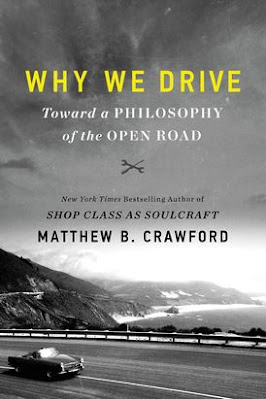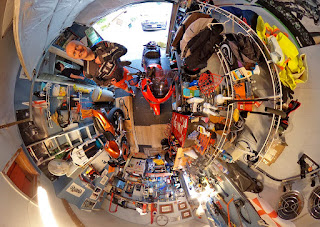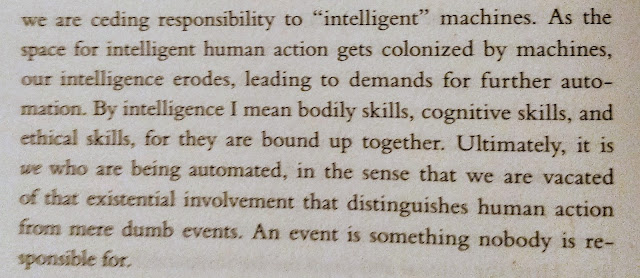I just started “Why We Drive” by Matthew Crawford. I was in the middle of transitioning from being an English teacher to a technology teacher back in 2012 when my university prof suggested Shop Class as Soul Craft, Crawford’s first book. It gave me the philosophical grounding I needed to value my manual expertise and to fight the prevailing academic prejudices of the education system I work in.
A few years later I’d embraced my new role teaching technology and found myself constantly arguing for parity with academic programs like the English one I’d just left. Crawford came out with his second book called “The World Beyond Your Head“, which made a strong argument for human expertise in a world where blind allegiance to system think made management a fragile grasp at control for people who have no other skills of value.
I’m only through the opening chapters of “Why We Drive“, but I’m enjoying the angle Crawford it taking in using driving (and riding, he doesn’t distinguish) as a means of questioning the assumptions we’re all increasingly living under. In the opening chapters he suggests that operating a vehicle is one of the few domains left that demand human expertise as the rest of society falls into a WALL-E like world of of systemic technology driven infantilism.
From Uber’s malicious dismantling of existing industries to suit the long term game of its investors to the NHTSA’s outright misleading information on Tesla’s Autopilot feature (they claimed that it radically reduced accidents when this was simply untrue), and the industry driven big government money drive to chase old cars off the street by misleading the public with even more false statistics, Crawford tears apart many of the assumptions around environmental NIMBYISM and the relentless capitalism that underlies it.
I’ve questioned the environmentalism of hybrid and electric cars before. It’s a classic case of NIMBYism where the wealthy hide their pollution further up the chain and then claim superiority over all the people who can’t afford to give up a tail pipe. One of the difficulties in being a teacher of technology is that I understand it, warts and all. Our battery technology is still medieval in both construction and effectiveness. They don’t hold a lot of power and don’t last very long, but any analysis of electric vehicle efficiency likes to sidestep that fact. Nissan Leaf owners can’t though.
Crawford also brings up the idea of recycling already manufactured vehicles rather than giving in to the relentless futurism of consumer society where owning anything old is paramount to a crime. He compares a massive new SUV (all modern vehicles are massive compared to older ones as they get weighed down with safety-at-all-costs tech and grown to maximum size) to his old VW. They get about the same mileage, but driving the Karmen Ghia is a very different experience to driving a modern safety tank.
It’s a challenging read, but also an opportunity to wake up from the progress pills everyone has been popping and understand that being human isn’t about efficiency and management, it’s about agency.
from Blogger https://ift.tt/2IhNfB8
via IFTTT



